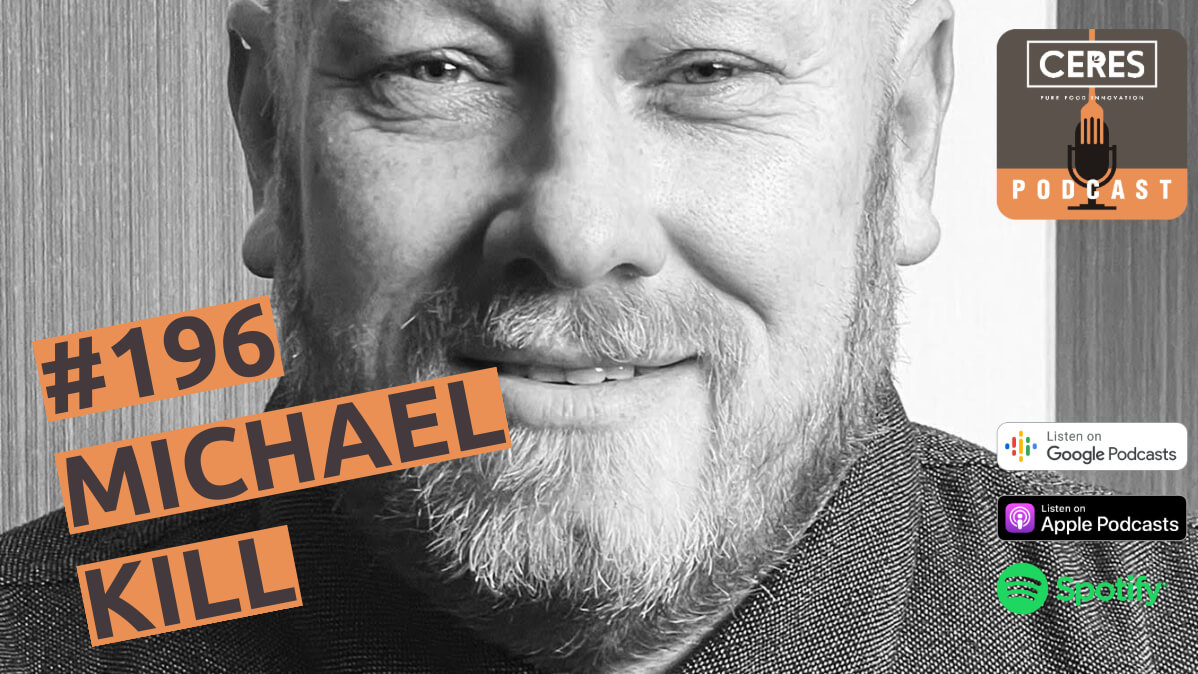Episode 196 Michael Kill talks to Stelios about the Future of Nightlife
Posted by Emma on 25th Jan 2025 Reading Time:
The latest episode of the Ceres Podcast, hosted by Stelios, features an in-depth conversation with Michael Kill, CEO of the Night Time Industries Association (NTIA). In this illuminating discussion, Michael shares his insights on the challenges and opportunities faced by the nighttime economy, offering a rare glimpse into an industry that is vital yet often misunderstood.
Setting the Stage: The NTIA's Mission
From the very beginning, Michael captures attention with his passion for championing independent venues and creating accessible opportunities for industry professionals. He highlights the NTIA's upcoming Night Time Economy Summit in Hockley, Birmingham, a dynamic event featuring 260 speakers, six stages, and 1,800 delegates. With an impressively low entry fee of £25 per day, the conference prioritises inclusivity, drawing a diverse audience of business owners, artists, policymakers, and international representatives.
Michael's commitment to hosting events in independent venues rather than large commercial spaces reflects the NTIA's ethos: supporting grassroots businesses while fostering innovation and collaboration. As he explains, "We ban suits and uniforms to break down barriers and ensure everyone feels comfortable engaging, from bar staff to CEOs." This egalitarian approach has helped the conference grow exponentially, becoming a cornerstone event for the sector.
Overregulation: A Roadblock to Growth
One of the central themes of the episode is the heavy regulation faced by the UK's nighttime economy. Michael candidly discusses the challenges of operating in an environment where stringent licensing laws, late-night levies, and complex compliance requirements create significant barriers for both new and existing businesses.
Drawing on international comparisons, he notes the stark contrast with places like Colombia, where setting up a bar involves far fewer regulatory hoops. " When I told them about the layers of licensing we deal with in the UK, they were shocked," he shares. Michael argues this overregulation stifles innovation and contributes to the decline of independent venues, leaving the sector vulnerable to corporate dominance.
Collaboration Across Borders
Michael's role as Vice President of the International Nightlife Association has given him a unique perspective on global trends. He emphasises the importance of learning from international counterparts, citing examples from Australia's Vibrancy Act to Japan's safety initiatives. "The nighttime economy is a global language," he says, advocating for cross-border collaboration to address shared challenges like safety, sustainability, and economic viability.
One particularly striking example is the concept of a "rave train," inspired by Berlin, where late-night trains feature DJs and music to enhance the nightlife experience. Michael's creative solutions highlight the potential for cultural exchange to invigorate the UK's nighttime sector.
A Sector at Risk
The conversation takes a sobering turn as Michael outlines the economic pressures threatening the industry. From skyrocketing costs to dwindling public transport options, he paints a picture of a sector struggling to survive. He critiques the lack of investment in late-night infrastructure, such as transport and policing, which leaves businesses and patrons underserved.
" We pay business rates like everyone else, yet we're expected to shoulder additional costs through late-night levies," he explains. These financial burdens and a lack of cohesive government strategy are pushing many independent operators to the brink.
The Human Element
Despite these challenges, Michael remains optimistic about the resilience of the industry. He highlights the entrepreneurial spirit and community focus that defines the nighttime economy, from the creativity of independent venue owners to the dedication of the frontline staff. " This sector is built on passion and people," he says, emphasising the need for policies that reflect cultural and economic importance.
The episode also delves into Michael's personal connections within the industry, from local operators to international leaders. His anecdotes about working with police, artists, and policymakers reveal a deep commitment to building bridges and finding common ground.
Why You Should Listen
Episode 196 of the Ceres Podcast is a must-listen for anyone interested in the intersection of business, culture, and community. Stelios steers the conversation, balancing hard-hitting questions with moments of levity. Whether you're a venue owner, policymaker, or simply a fan of nightlife, this episode offers valuable insights into an industry that touches all our lives.
Michael's passion, coupled with his wealth of experience, makes for a compelling listen. From actionable ideas like simplifying licensing laws to thought-provoking discussions on the cultural value of nightlife, the episode is packed with takeaways that will leave you thinking long after the final word.
Ready to dive in? Listen to Episode 196 of the Ceres Podcast on your favourite podcast platform, including Apple Podcasts, Spotify, and more. Don't miss this opportunity to hear from one of the leading voices in the nighttime economy.





